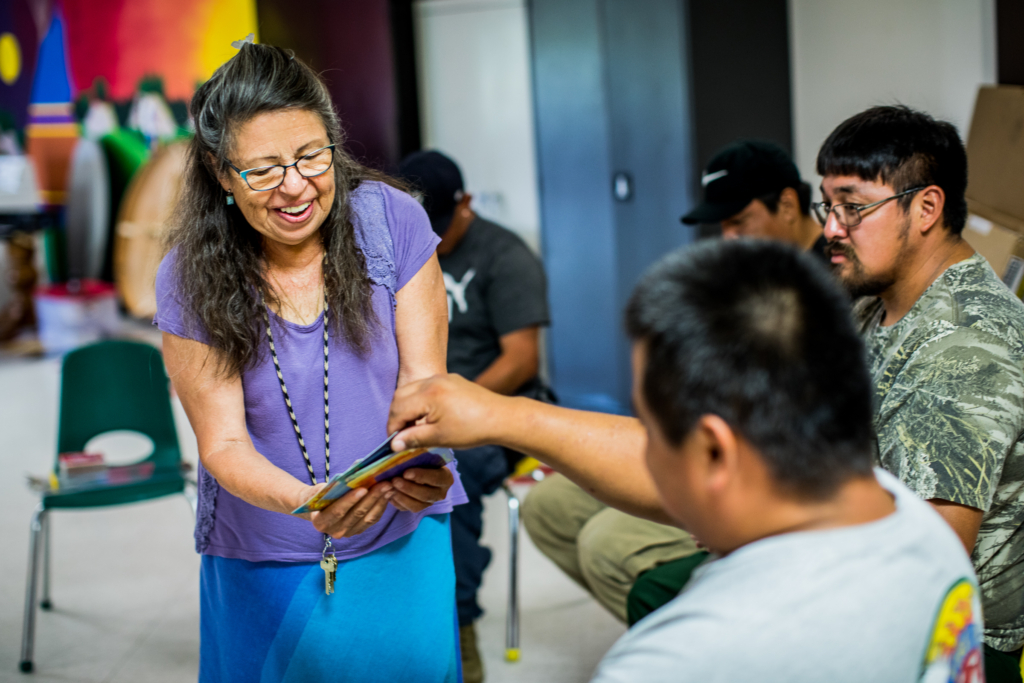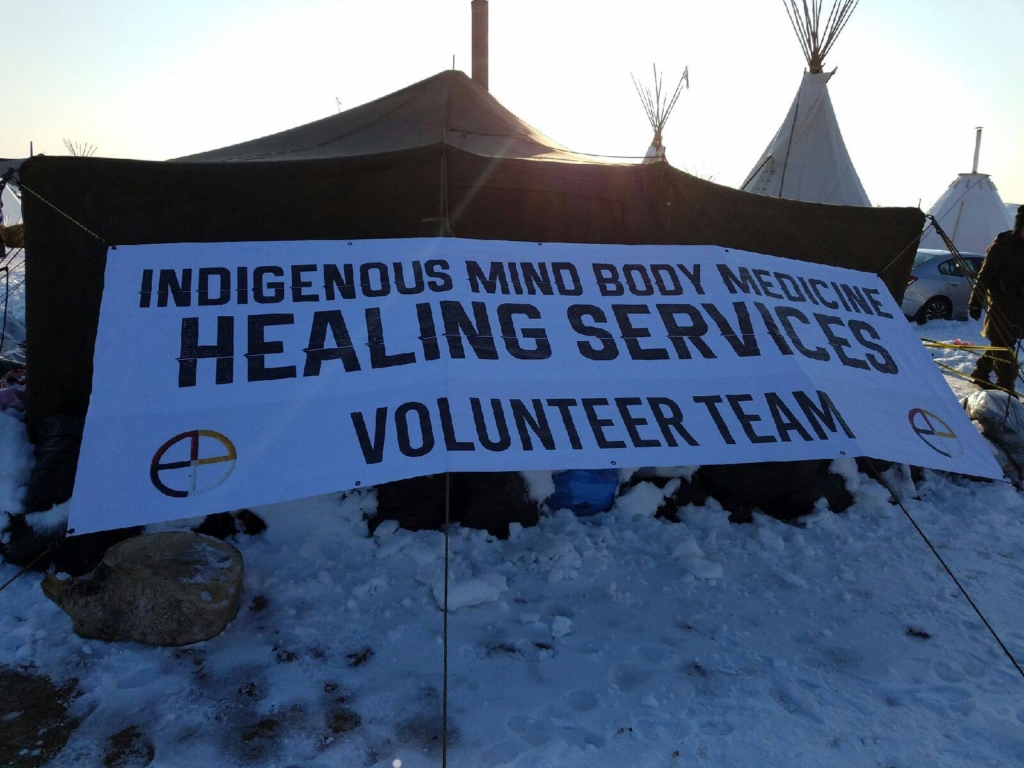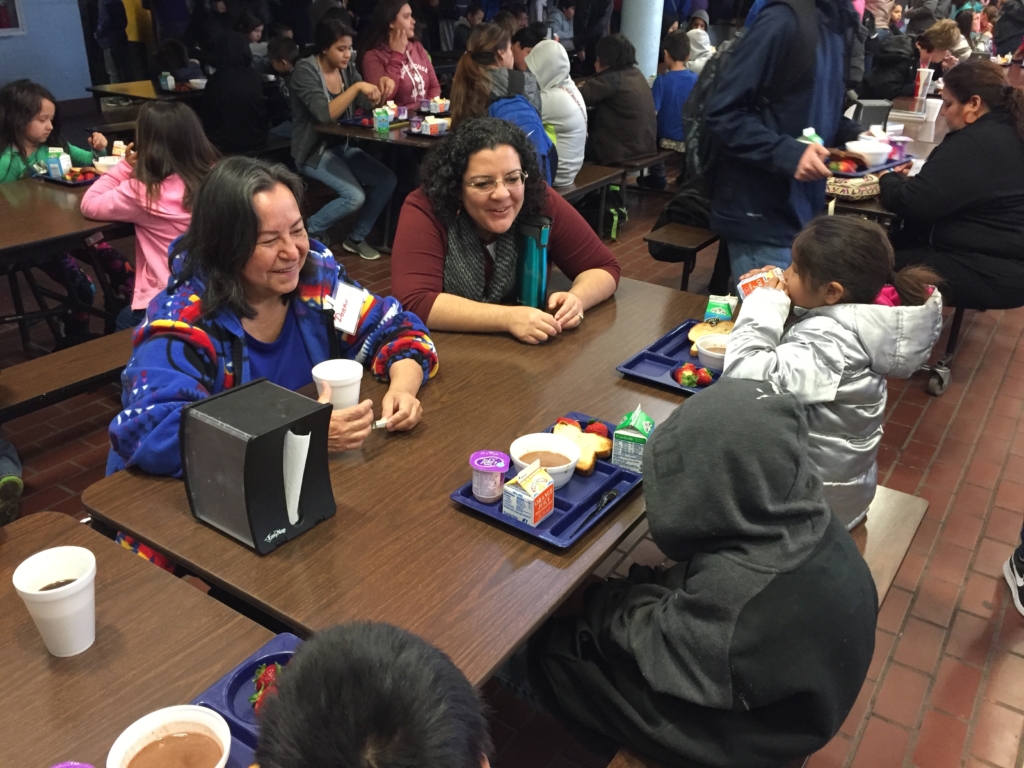“Elders treat ills with mind-body medicine, native healing traditions”
Allie Shah, Star Tribune, June 28, 2015
We’ve trained over 400 residents on the Pine Ridge Indian Reservation in mind-body medicine, and have brought the CMBM model to thousands of children and adults. As a result, we have seen a transformational reduction in suicidal completion, ideation, and attempts.
Indigenous communities in South Dakota and the Great Plains are experiencing an economic and healthcare crisis. The Pine Ridge Indian Reservation is home to 45,000 members of the Oglala Lakota Nation, renowned for its culture, art, sacred traditions and ceremonies, prowess on the battlefield, and deep wisdom. Oglala Lakota County is among the poorest counties in the United States, with 51.9% of residents living below the poverty line. Unemployment rates hover at over 80% and high school dropout rates exceed 60% of students, according to the 2019 Congressional Testimony of Julian Bear Runner, President of the Oglala Sioux Tribe. The nearby Rosebud Indian Reservation, where members of the Sicangu Lakota Nation reside, and the Urban Indian population of Rapid City, SD face similar challenges.
The dire impact of this economic catastrophe is exacerbated by a lack of equitable healthcare resources available to Indigenous people in the region. Pine Ridge has long suffered from staggering youth suicide rates. Crumbling municipal infrastructure and dire housing shortages add undue stress to community members.
In 2010, Lakota Elder Basil Brave Heart invited us to bring our model of self-care and mutual support to the Pine Ridge Indian Reservation. In our initial engagement, we offered free self-care workshops and Mind-Body Skills Groups to community leaders and health professionals from hospitals, schools, detention centers, and health boards. Through this outreach effort, we fostered long-lasting and meaningful relationships with members of the Oglala Lakota Nation, as well as with funders who would go on to support several cycles of training.
Watch how The Center for Mind-Body Medicine’s work with the Lakota Tribe is making a difference in their community
Since 2011, more than 400 residents, professionals, and community leaders from across the Pine Ridge Indian Reservation have completed training in mind-body medicine through our Indigenous Initiative. They have, in turn, brought this work to more than 4,000 children and adults through Mind-Body Skills Groups, and countless more through workshops and in classrooms.
A number of leaders have joined our Faculty and Supervisor community, and work closely with our Staff to expand the reach of our model in their communities. They have integrated mind-body skills into K-12 school curricula, reaching some 2,600 students, and women’s support groups across Oglala Lakota County.

Through a grant from the Administration for Native Americans, we brought mind-body medicine training to students ages 10-18 at Little Wound School in Kyle, SD in May and July 2019.
We measured students, aged 10-18, on the Depression Anxiety and Stress Scale (DASS-21) before and after training completion. We recorded mild levels of depression and moderate levels of anxiety before training, and found a significant improvement in depression scores for both training programs, with depression levels reduced to normal. Stress scores were at normal levels before training, but were significantly decreased after training. And we recorded a significant decrease in anxiety for July participants.
We also measured students pre- and post-training on the Positive and Negative Affect Schedule-Cd (PANAS-C short version), a 10-item scale for youth that measures positive affect (i.e., cheerful, happy, proud, joyful, lively) and negative affect (i.e., sad, miserable, scarred, mad, and afraid). We found a significant decrease in negative affect scores following both trainings.
Overall, youth participating in our training experienced a significant decrease in depression symptoms, stress, and negative affect following the training. Participants of the July program also experienced a significant decrease in anxiety symptoms. While mental and physical health challenges persist in Pine Ridge, local leaders continue to integrate mind-body medicine across numerous settings to support the ongoing healing efforts for this community.





Allie Shah, Star Tribune, June 28, 2015

Dominique Godrèche, Indian Country Today Media Network, March 1, 2016

Jim Kent, South Dakota Public Broadcasting, December 17, 2015




